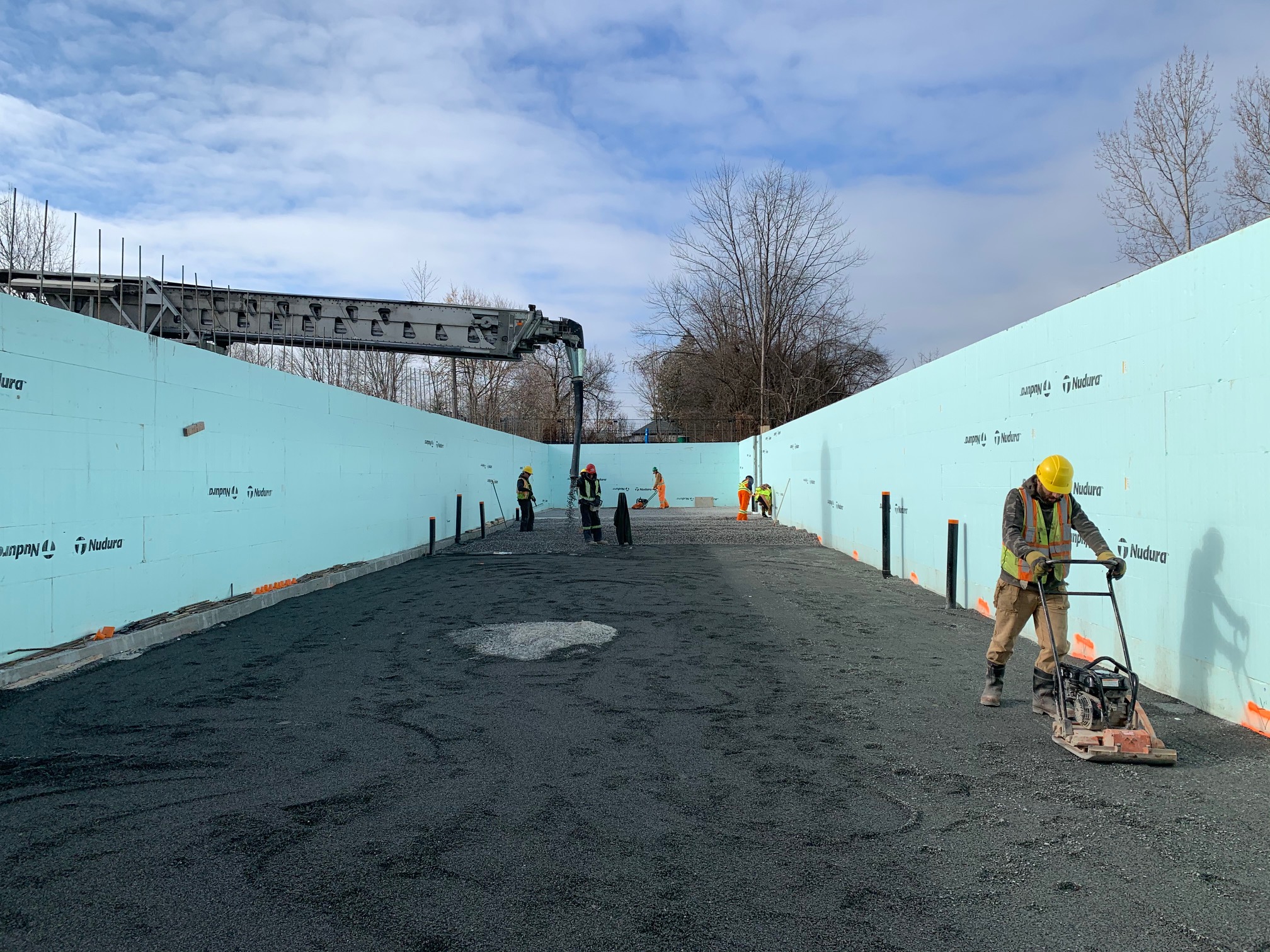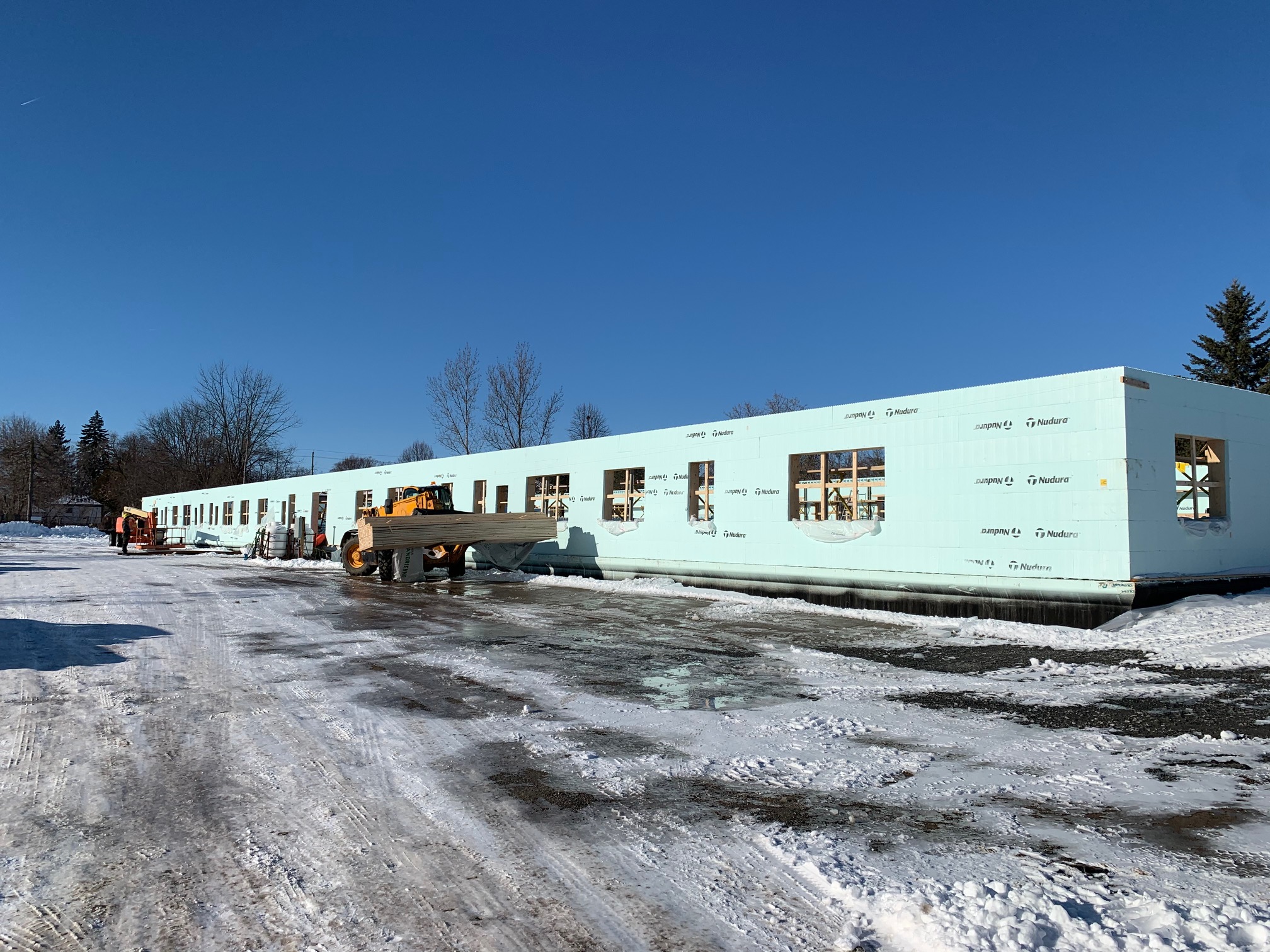
- Products
- Why Nudura
- Nudura Project Applications
- Training Academy
- Resources
- Company
Contractors and builders know how to work in extreme conditions, from scorching heatwaves to biting cold. But certain building processes, such as pouring concrete, can be near impossible and very expensive to do at various times of the year.
Rather than lose time waiting for goldilocks weather to arrive or pay through the roof to heat or cool your jobsite, you can work with Insulated Concrete Forms (ICFs) which let you build more efficiently in virtually any climate. By saving you time and money on exterior wall construction, ICFs can make your business more profitable with consistent work throughout the year.
Here’s what you need to know:
Instantly Insulating 
Concrete needs to stay above 40°F for the first 24 hours after it’s poured to ensure it cures properly. Maintaining these temperatures can be a challenge in cold fall and winter weather. But the two continuous layers of expanded polystyrene (EPS) in ICFs immediately begin to insulate the concrete poured within the form. This means the concrete will stay at the temperature it was poured at for longer, so it can cure appropriately.
In hot weather, this feature can shorten curing time, so your team can complete more projects during a traditionally busy season.
While the concrete is curing, ICF walls can even provide your crew with more protection from the cold and wind compared to wood framing, so you can quickly move on to indoor tasks like wiring or interior framing in safer and more comfortable conditions.
Efficient Installs
No matter what conditions you’re working in, it pays to be able maintain quality and maximize efficiency. And ICF construction can be completed 25 to 50 percent faster than wood framing.
Nudura ICFs combine six installation steps into one, thereby reducing the amount of other tools and materials you need on the jobsite.
The lightweight, 4-way-reversible system makes stacking ICF blocks easy, and it doesn’t need skilled labor or a specialized engineer to install, which minimizes the negative effects of the ongoing labor shortage (and when you’re working through flu season or spring break).
When the weather doesn’t cooperate, the faster and easier the building process is, the less time and money you lose on temperature-related downtime, special heating or cooling equipment and added safety protocols required during cold snaps, heat waves or smoky skies.


Dependable Durability
If you work in a place that’s been ravaged by wildfires, tornadoes or hurricanes, you know first-hand how dangerous those conditions can be. It’s tough for many clients to commit to building a new property when they fear it could be destroyed by a natural disaster. Fortunately, Nudura ICFs have a 4-hour fire rating and can be engineered to withstand extreme winds and flying debris to keep occupants protected. In the event of a pending storm, your client can rest easy with the knowledge that even if an evacuation occurs while construction is underway, their investment will remain standing.
One Thing to Remember for Winter Builds
ICF wall construction doesn’t require you to remove snow or fallen leaves from the interior subfloor, but you should be sure to cover the top of the wall during inclement weather to prevent snow or other debris from building up inside it.
To learn more about starting with ICFs to make construction more efficient and satisfy your clients, check out this blog post.
CONTACT US
We’re committed to supporting homeowners and design professionals who are interested in or use our products. We’re always happy to help and provide more information.




